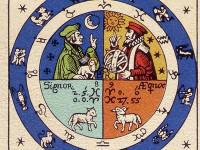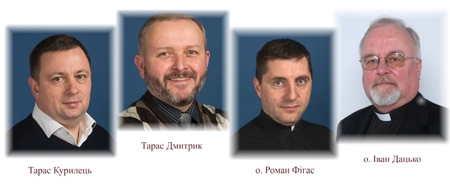The Churches and the calendar battles: is it possible to come to agreement?
Why do Christian Churches use different calendars in their liturgical lives? Is it possible to celebrate the most solemn Christian feast of the Lord's Resurrection together? These and other issues were discussed by the staff of the Institute of Ecumenical Studies of the Ukrainian Catholic University on April 9, 2020.
The discussion was run by the IES’ researchers Taras Dmytryk (Orthodox Church of Ukraine) and Fr. Dr. Roman Fihas (Ukrainian Greek-Catholic Church), and moderated by the IES’ researcher Taras Kurylets. IES’ President Fr. Dr. Iwan Dacko expressed his vision regarding the calendar issue as well.
There will be two Paschas in Ukraine this year: one is calculated according to the Gregorian calendar and another is set by the Julian calendar. Participants of the discussion reminded the causes of the two different church calendars existence. The rule of the first Ecumenical council in Nicaea, which still determines the rule for the Easter date calculation for all the Churches, was mention in the meeting. Thus the feast of Easter is always celebrated according to the Nicaean rule after the Jewish feast of Passover (since the old Jewish calendar linked the covenant between God and humanity with the crossing of the Red Sea and the fourth day of creation). Fr. Roman Fihas mentioned a conference at Aleppo in Syria, 5-10 March 1997, when the representatives of the major Christian traditions agreed on how to establish a common date that would be acceptable to the whole Christian world. The proposal was that the Churches would continue to follow the Nicaean rule for calculating the date of Easter, but they would rely on very exact modern astronomical data, and use the Jerusalem meridian.
Participants stressed the importance and ecumenical value of this decision, and underlined the lack of trust between the Churches, which does not allow them to come to agreement in the calendar issue.



